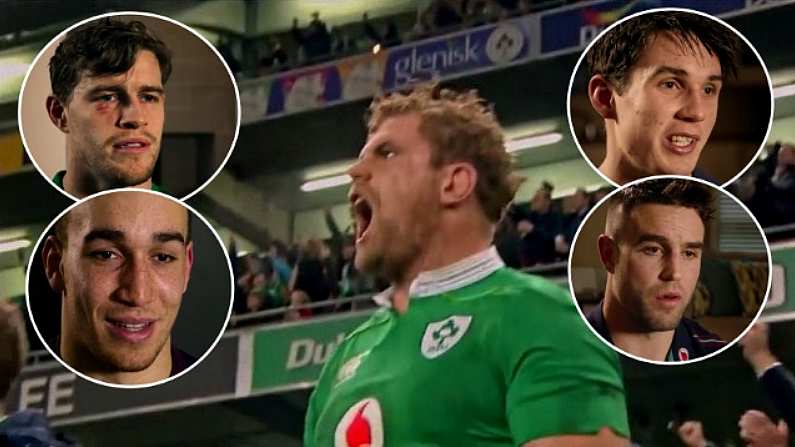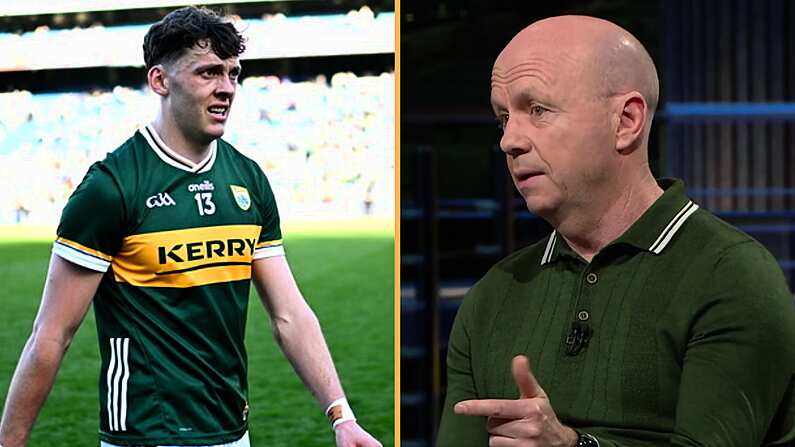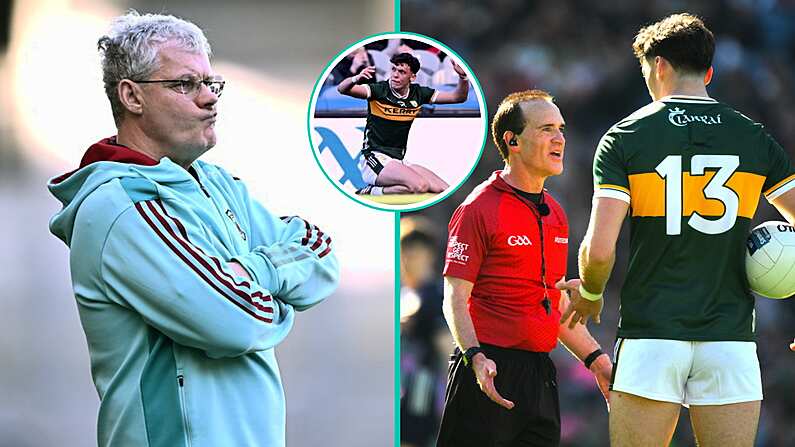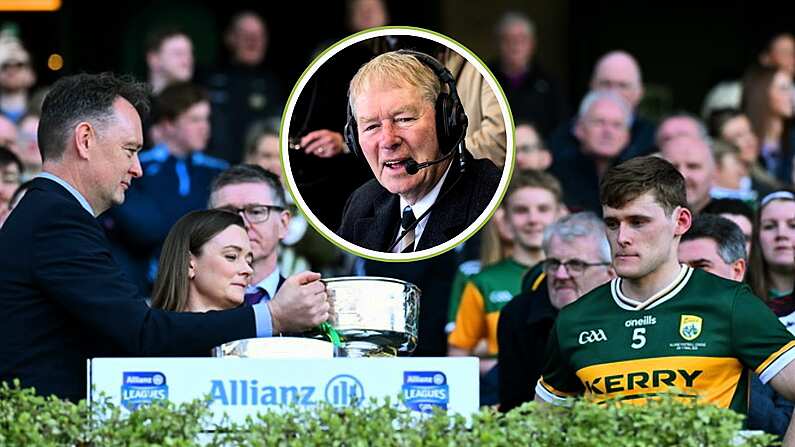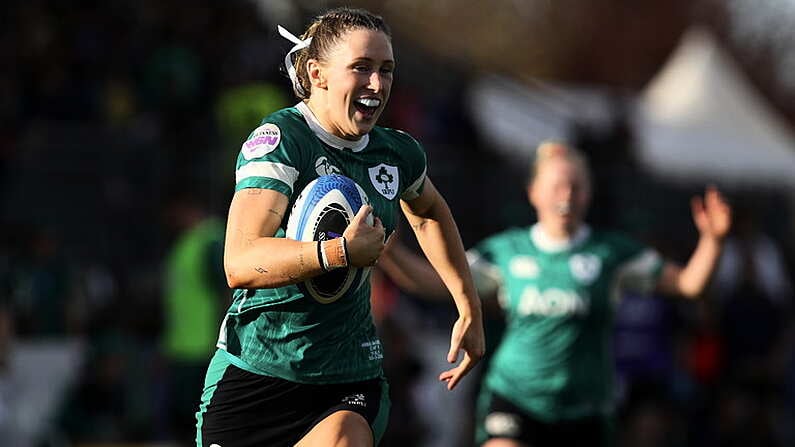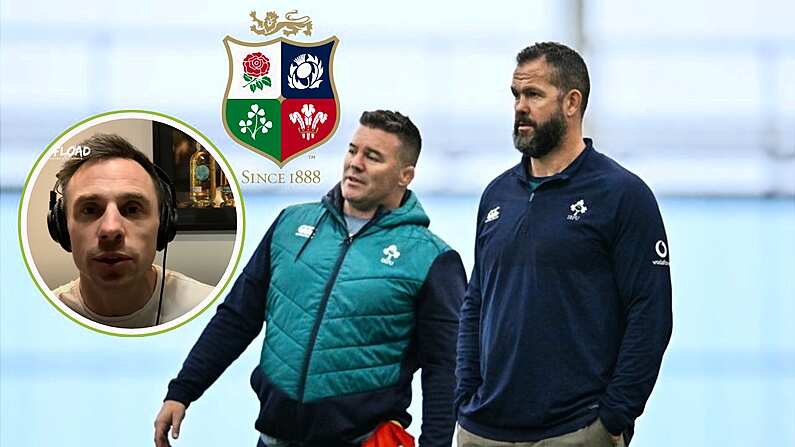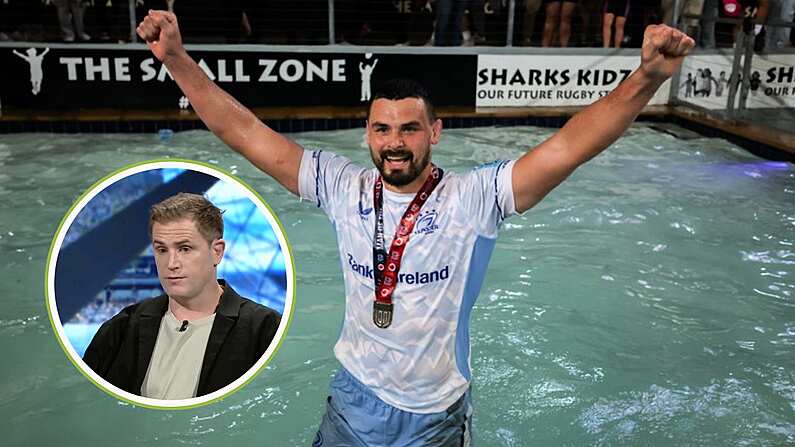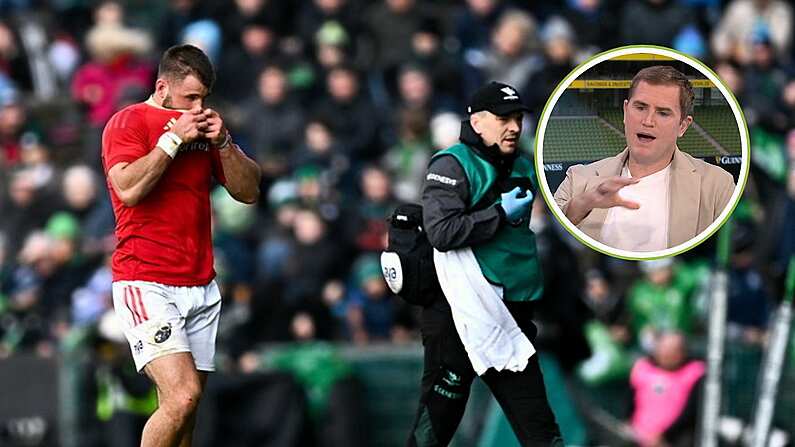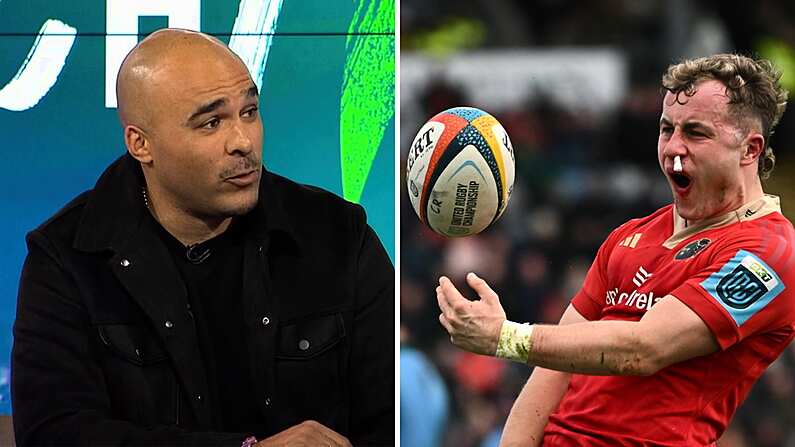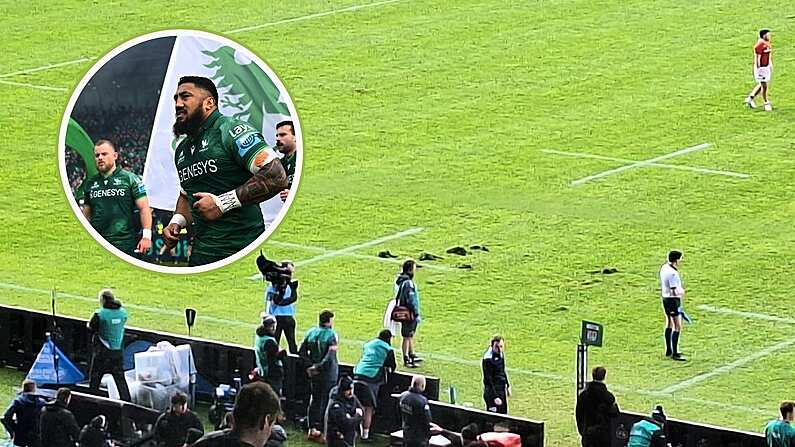There's a moment where Joe Schmidt breathes a long sigh of relief. The Ireland head coach has just come to the end of a trio of events - an interview with South African TV, Ireland's summer series against the Springboks and also the 2015/16 season. There's a look of exhaustion on Schmidt's face and he appears glad of the respite.
It's just the first of many little peeks behind-the-scenes of the Irish rugby team which feature in 'Four Days In November', a new documentary about the November Internationals which will premiere on RTE 2 following Ireland's Six Nations game against France on Saturday evening.
Ireland's historic win against the All Blacks in Chicago rightly dominates the 50-odd minutes. The sense of occasion around that game is well-established. We hear how much players wanted to be part of the squad, fearing an injury while playing for their province may rule them out.
Tadhg Furlong tells us of his mindset going into the game. He doesn't fear the All Blacks but knows that if his game isn't at its peak, if he doesn't nail his role, 'these lads will tear you apart'.
Young players feature throughout. The zen-like Joey Carbery relates how Joe Schmidt instilled confidence while the Ireland head coach explains why he has such belief in a player who only turned 21 on the week of the game. Schmidt has been watching Carbery for five years and realises the out-half's innate calm.
The shy Ultan Dillane is more nervous about doing a Man of the Match interview than he is playing a game. Tadhg Furlong expresses his passion for physical contact on the pitch.
The All Blacks victory might be the star of the show but Andrew Trimble is the star individual. The Ulster winger comes across well, telling us about his shaky confidence before games - 'On matchday mornings I've always thought, 'This is the day everyone's going to find out how rubbish I am.''
It's just one of a number of insights into Trimble. He knows he has to enjoy big occasions in an Ireland shirt, 'A few more years and I'll have to get a day job.' Post-victory against New Zealand, his thinking went far into the future, 'I was just looking forward to talking about this for years and people getting fed up of hearing me talk about the time I was in the team that beat the All Blacks.'
Even when Trimble is talking about not being interesting, he's interesting.
It can be tricky at times [doing media interviews]. Sometimes, I just feel like there's no story. There's nothing specific to talk about. There's no answers that aren't obvious.
I find myself just being unbelievably boring at press conferences. I just think, 'This is a little bit pointless'. I try to be as honest as I can but you try not to say anything stupid aswell. I've done that before.
We get a new angle on the All Blacks game, one from behind the replacements bench at Soldier Field. It makes you realise that the players had the same range of emotions as fans while watching the game. When Julian Savea is pushed into touch, winning a five-metre scrum for Ireland which would eventually set up Robbie Henshaw's crucial try, players - bar Rory Best who was resistant to tempting fate - jump to their feet.
Scrum coach Greg Feek, a New Zealander, divulges the extra significance of the pre-match tribute to Anthony Foley. During the All Blacks' Haka, Ireland players stood in a figure-of-eight formation. Feek said his father and other Kiwis in the stadium simply thought, 'Oh heck'.
It would be tempting to wish the entire length of the documentary was given completely to that All Blacks game; one it's tough to overindulge on.
The other three games in November - against Canada, New Zealand and Australia - are given real significance, though.
Canada was a chance for the young players to shine. Joe Schmidt tells us he and his backroom staff wanted to put the youngsters under pressure.
You get a real sense of how bruising the second November encounter with the All Blacks actually was. Donnacha Ryan had to assure his mother, 'The hits always look worse than they are', though, on that day, it may not have been the case. Tadhg Furlong left the pitch having 'never been so sore in my life.'
After New Zealand's revenge is exacted, there's a real sense established that Ireland have to beat Australia or a bitter taste will be on the palate about the November series. The adversity which Ireland faced in getting over the line against the Wallabies is affirmed. Ireland were ravaged by injuries going into and during the game.
Rob Kearney and Andrew Trimble were both forced off in the first half. When Jared Payne was unable to re-enter the action following the break, backup scrum-half Kieran Marmion was brought on as a replacement. Andy Farrell explains that players were looking around wondering 'What position are you playing?' Many didn't know that Payne had been unable to continue.
Those four November games were a memorable series for Irish fans. 'Four Days In November' provides a thoroughly enjoyable means to relive them and experience them in a fresh way.
'Four Days In November' airs at 7:30pm on RTE 2 on Saturday, February 25th directly following Ireland vs France in the Six Nations.

